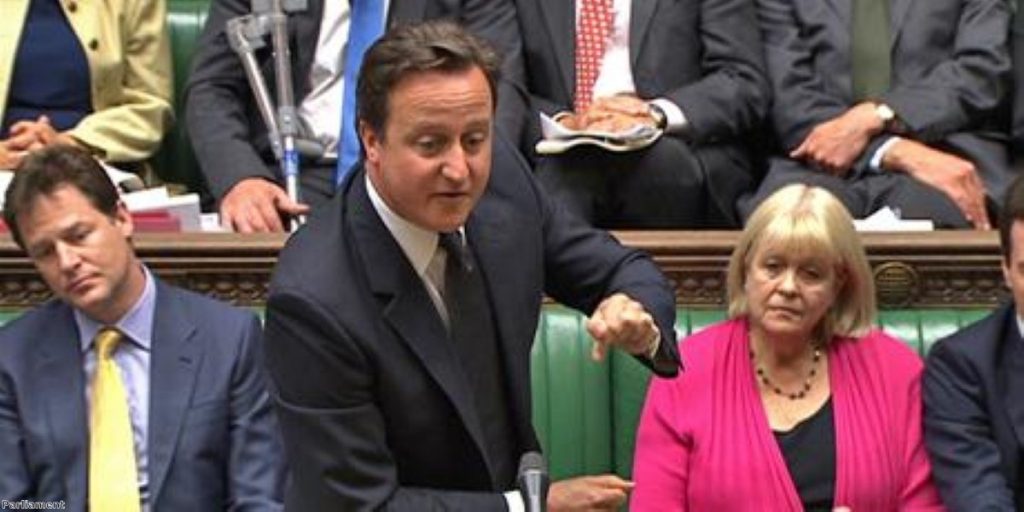PMQs verdict: Miliband haunts Cameron with the ghost of Syria
Father of the House Peter Tapsell started the session with a call for the impeachment of Tony Blair.
Impeachment in the UK is different to the US. It was last used hundreds of years ago, but a select committee can draw up evidence against someone who has committed "high crimes or misdemeanours beyond the rule of law". They can then be put on trial before the House of Lords for their alleged crimes, or for criminally damaging the public interest. A majority is required to convict.
Yes, it seems delicious. No, it obviously won't happen.
Ben Bradshaw, a thoroughly Blairite Labour MP, guffawed loudly. Cameron responded with a surprisingly party-political attack, criticising Ed Miliband for voting against the Iraq Inquiry when the Tories first started supporting it.


The Labour leader was more generous in response, asking a series of consensual, sombre and pertinent questions about the bloody chaos in Iraq and Syria. What were we doing about radicalised Brits going to Iraq? How could we establish a less divisive government in Iraq? Could he work with other countries in the region to do it?
Cameron agreed with all of it. He had a sensible middle-ground position, well expressed, that strikes could cause more problems than they fixed but that pretending it was nothing to do with us indicated a very limited sense of the national interest.
Exchanges like this are usually seen as a no-score draw, but the fact the prime minister is agreeing with the questioner – the fortune of the order – plays to the leader of the opposition's advantage.
More importantly, it does Miliband no harm to remind the press gallery that he has the power, post-Iraq, to stop Cameron's foreign adventures should he choose to have them. The shadow of that Syria vote hung closely over proceedings. Later, Cameron would mention threats in Nigeria and Mali and you could see the glimmer in his eye, the way the swagger of international diplomacy and adventurism seduces British prime ministers into imagining they have more power than they really do. In different circumstances he might have self-identified as a messianic interventionist, as Blair did.
But the fact the exchange came a week late spoke to Britain's impotence and also to the self-imposed irrelevance of Westminster. Not one MP asked about Iraq last week. The current crop of politicians is highly provincial.
As if to prove the point, the Tory Treasury Twitter account had the bad taste to write this during the session: "Another week with no question from Ed Miliband on the economy". Those in the political bubble find it most comfortable when they stare down at their feet.
A little later Cameron was asked about the continued efforts to stop Jean-Claude Juncker becoming European commission president. He all but admitted that he would lose, but roared: "I don't care how many people from the European Council agree with me, I'm going to fight this through to the very end."
Tory MPs cheered with approval. Even in defeat, the fight against Juncker offered some semblance of British relevance, a fight in which it could, at the very least, rattle a few cages.
At this point, some reporters said they saw Cameron mouth the words "thank you" to Miliband, who nodded back. I didn't see it. It's not clear whether it referred to Iraq or to Junker.
Verdict: Miliband 1 Cameron 0

